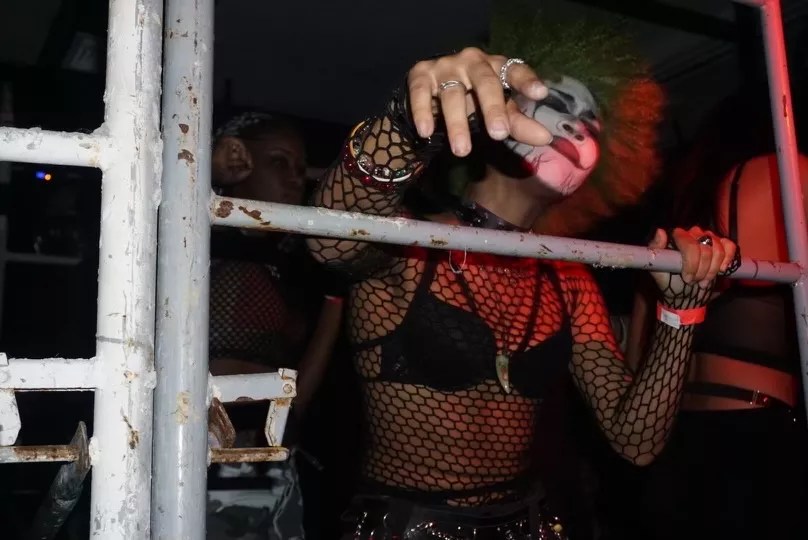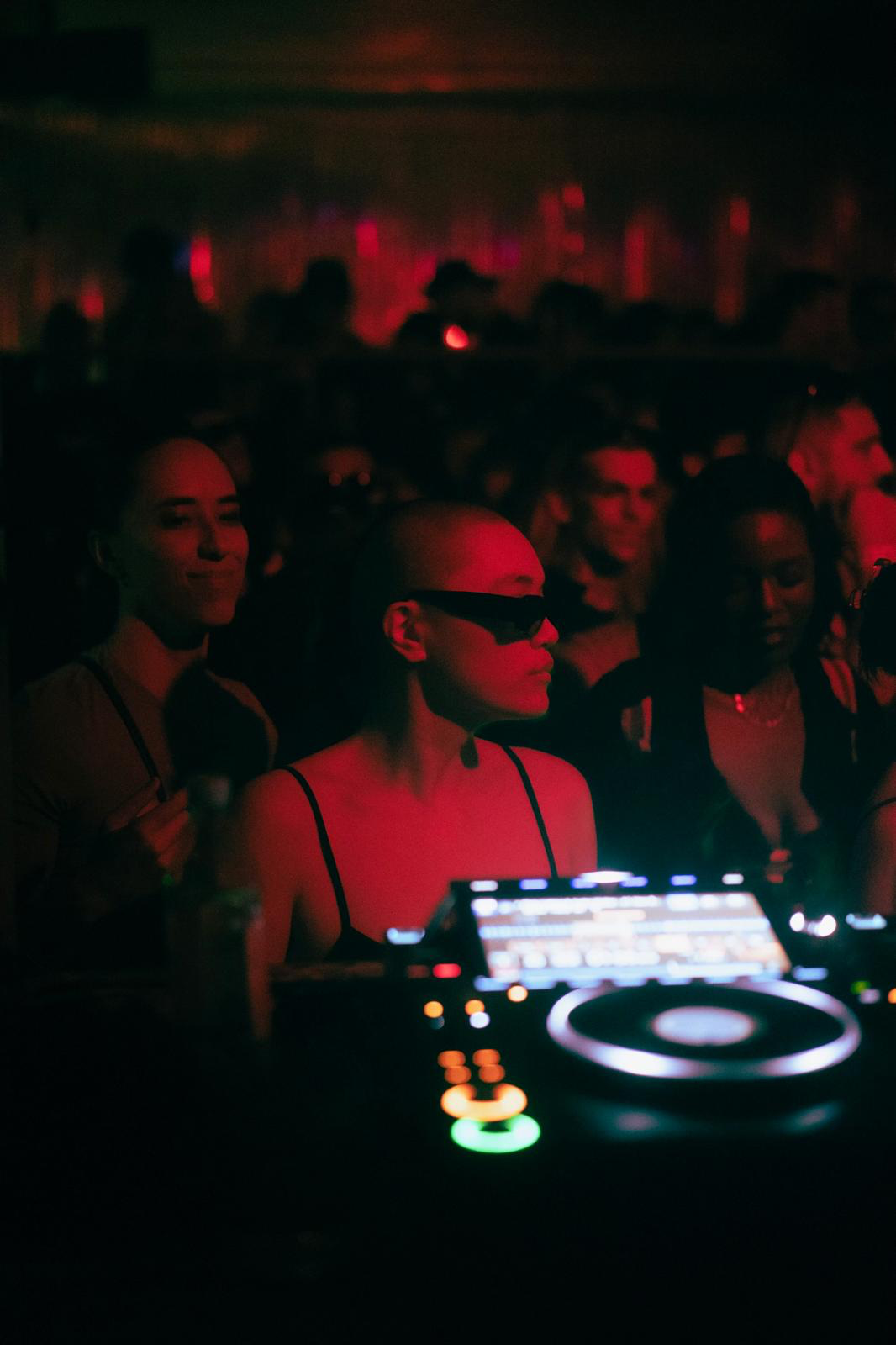
Photo by Daniel Betancourt

Audio By Carbonatix
It would appear that the recent resurrection of Miami’s closed clubs must be a result of divine intervention. While some venues expressed a promise to return, a fan remained sanguine and realized the laborious task of reopening a now-closed venue.
Yet in three months, bygone clubs like Eagle Room, Boombox, Las Rosas, and now Domicile have reopened their doors in old and new locations.
Domicile, the underground hard techno rave spot in Little Haiti, announced on Instagram last year that “due to circumstances beyond our control, we are unable to continue operating at our home venue for the time being.”
Its owner, Sagiv Israel, shared with New Times last year about the closure that “this has been nine months in the making, and we’re getting ready to soon unleash something Miami has never seen before. Our community demanded the ultimate techno experience, and we’re bringing it.”
Israel now tells New Times that the club is coming back on September 5 – not in its old homestead, but in a freestanding building right across from the recently regenerated Las Rosas between 28th and NW 7th Avenue, for nothing short of pulsating techno all night long.
“We signed the agreement for the new location way before the old location was shut down by the city,” Israel, an Israeli native, former New Yorker, and now Miamian, clarifies. Rather than exhausting time and money on renovations to make the old haunt code-compliant, moving was faster (though a little behind schedule).
“It looks like a lot of things are coming down to the new area over Las Rosas, and now Domicile, and becoming the new area for nightlife.”
Domicile was cheap, and you could hear techno unlike anywhere else in the city, weekend after weekend. Sure, clubs can book the hard techno act de jour, but Domicile made it its function (not counting goth nights).
Locals, national, or international artists could play all night and fast – so very fast, maybe 150 to 170 BPM. The old venue was a small black box with scaffolding and some lights.
Domicile 2.0 was home to a former auto repair shop. Israel explains that the city, through its “certificate of uses,” has allowed new businesses to take over and promote nightlife.
For example, the certificate of use forbids another auto shop from taking over, but it will permit an entertainment venue to replace the auto shop. “They’re changing the area and making it more for entertainment. I’m a big believer in that area.”
Israel assured us that the new location will be a far cry from the previous one. He cannot understate the most significant change to Domicile: that the club will now be Miami’s only freestanding building dedicated solely to techno music. “It’s not a club that plays techno here or there or is inside a mini-strip mall,” he says, comparing the locations.
The interior will “have a new sound system, which is custom-made to fit the room and the genre.” Instead of two bathrooms, some porta-potties, and a small outdoor space, “We will have 14 bathrooms and 10,000 square feet of outdoor space that will have a roof,” to protect from the elements.
Domicile will kick off its reopening with its “DomicileXL” events, which happen three to four times a year and feature the French-born techno artist CLTX as the headliner.
Still, Israel wants more. He views a club as a cultural hub – more than just a place to listen to music for a few hours and have a beer. A club should teach, build, and inspire the community.

Aside from the weekend roster of talent, Domicile will have myriad free events on weekdays.
Photo by Domicile
Aside from the weekend roster of talent, Domicile will have myriad free events on weekdays, from learning how to DJ on real decks connected to a bona fide sound system to yoga/meditation.
“The new building is returning to Domicile’s original reason: to be the center for the community.” Twice a month, a volunteer will come to explain how to build live sets and become a better producer.
“One thing is bothering me: we have a lot of great talent in Miami, but for some reason, most don’t make it outside Miami, and certainly not the world.” To clarify, Israel is referencing hard techno DJs – Miami clearly has had its share of tech-house and experimental DJs that have made their way onto the international circuit.
Israel found his calling in the electronic music nightlife through his country’s renowned psy-trance scene and opened his first club in Tel Aviv at eighteen. He moved to New York for work and then to Miami. He noticed the absence of low-fare, pure clubs devoted to harder electronic music in the Magic City.
So, in 2022, he took over the Little Haiti spot and started the nameless club. One patron was so impressed that he posted on social media and declared it his new “Domicile.”
“I had to look up the word, and it means ‘the place where you feel at home.’ It hit me that this guy named it perfectly; it was exactly what I wanted to do.”
Israel now splits his mission to showcase a great party and spotlight the local talent, whether it’s the club’s residents, its guest acts, or Domicile’s international partnerships with French and Italian promoters. Ultimately, he hopes that the two nights of ticket sales – Saturdays and Sundays – will carry the weight for the community events and be a space for inspiration through music.
“It’s far from being just a club. Everything else will be for building the community because that is challenging on its own.”
DomicileXL Ft. CLTX. With Gioh Cecato, Jay Toledo, and Nebülä. 11 p.m. Friday, September 5, at Domicile Miami, 2900 NW Seventh Avenue, Miami; instagram.com/domicile.miami. Tickets cost $22.21 via dice.fm.